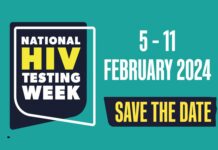The absolute numbers of new HIV diagnoses amongst men who have sex with men (MSM) have been going up for several years. There is a feeling amongst some groups in HIV prevention that the condom isn’t working. Now a new daily pill that could prevent HIV infection, named PrEP, has made a significant advancement in its UK study trials. We spoke to Professor Sheena McCormack at the head of the study, to find out more.
By Patrick Cash
Tell us a bit about yourself.
I’ve been working in a sexual health clinic since 1986 mainly in London. I can remember very clearly the medical and social impact of HIV before we had triple therapy, and our cautious acceptance that this really was going to revolutionise treatment. Since 1994 I have been working on a variety of methods to prevent HIV – vaccines, vaginal microbicides and most recently PrEP. In the last 5 years there has been a similar revolution for prevention – very exciting after decades of getting nowhere!
For anyone who doesn’t know, what is the PROUD study?
PROUD is a PrEP study, which started as a small pilot study to see if we could do a study 10 times larger! We wanted to measure the real-life effectiveness of PrEP in a UK setting. To do this we needed to be able to compare PrEP to no-PrEP, when the people taking PrEP know they are taking a drug that reduces their risk of catching HIV. We have been recruiting gay men, other men who have sex with men, and transgender women to help us compare PrEP to no-PrEP in real-life setting. To do this, half the participants are given PrEP and half are not. The PrEP drug we are studying is Truvada, a drug used to treat HIV infection.
What is the advancement that has been made with PrEP last week?
To our surprise this small study seems to have answered the question. Unfortunately, this must mean that the rate of HIV infections is higher than we expected based on all gay men that attend the sexual health clinics in England – 113,000 in 2013! It must also mean that Truvada is highly protective, which is a big step in the right direction. An important part of the work now is to calculate the costs of a PrEP programme, which depends on effectiveness but also the cost of delivering PrEP in clinics. Although the final results, which we will have early next year, will be the critical component, we need to understand more about patterns of PrEP use over a longer time period.
“As well as the impact on the epidemic, I would like to think that PrEP will facilitate a social change too.”
Why is there such a passionate debate surrounding PrEP?
Well, I know I feel passionate about it! PrEP offers an exciting opportunity to make a major difference to the epidemic. We are pretty sure that the majority of people who are infectious with HIV think of themselves as negative either because they have not tested at all, or because the last time they tested HIV negative they had in fact caught HIV just before the test, or subsequently. PrEP provides an incentive to be tested regularly, and because it is highly protective for the individual, it is protecting the people they have sex with too!
However, the drugs we are using are the same drugs we use for treatment, they are expensive, and the budget is limited – especially at the moment – so there are opportunity costs to consider. Condoms on the other hand, are relatively cheap for the NHS and reduce the risk of more than just HIV. It’s not just sexual health and HIV demands that introducing PrEP might threaten, it’s also treatment and care in other diseases. All this has to be considered.
How do you personally hope that PrEP will change or revolutionise your work in the HIV field with MSM?
As well as the impact on the epidemic, I would like to think that PrEP will facilitate a social change too. It is a way of taking responsibility for your risk of HIV and sharing this burden with HIV positive people. It should facilitate more honest and broader discussion in sexual health clinics.












